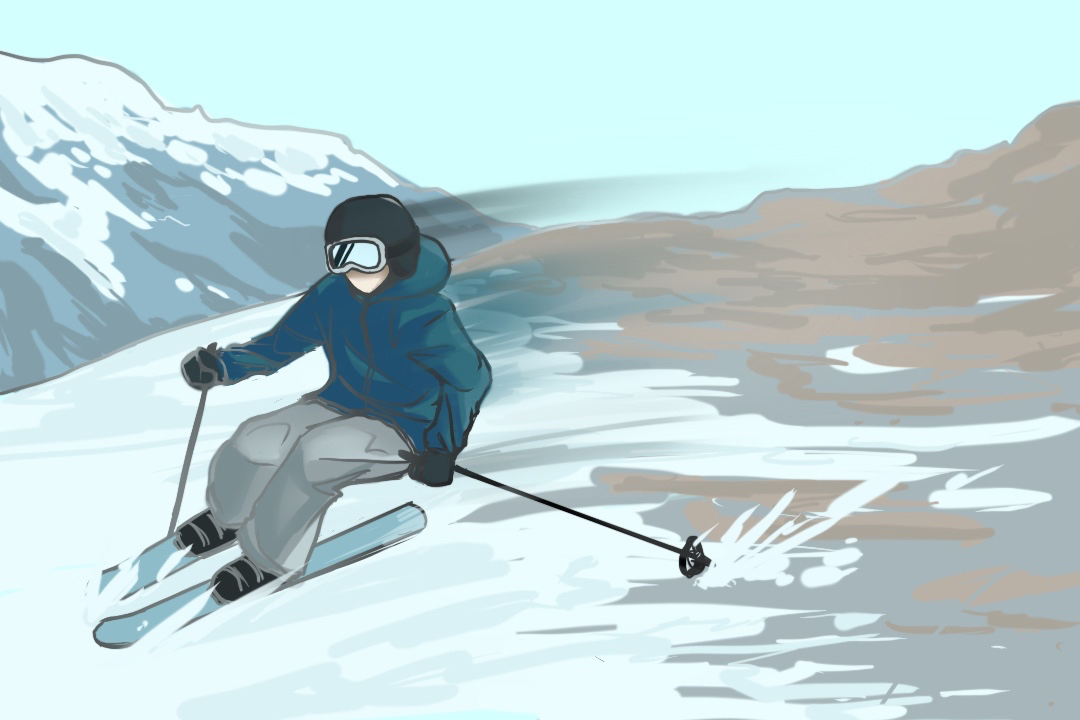The ongoing global fight against the climate crisis is over 30 years in the running, and with no sign of slowing down, the world is beginning to morph and shift beneath our feet. For the most part, we all appear to be playing our role. Cloth shopping bags, reusable cups, public transport, upcycling — each choice works towards offsetting the carbon emissions created by heavy manufacturing and production processes that are the bane of our current climate crisis.
But what are corporations and organizations that control these processes doing to reduce their environmental impact? The answer: not much. At least, not in the eyes of the 484 athletes signed under the International Ski Federation (FIS), who released an open letter earlier this year demanding that the FIS take real, organizational action in the global fight against climate change.
In their letter titled ‘Our sport is endangered’, the FIS-registered athletes headed by Protect Our Winters (POW) climate advocate and skier Julian Schütter evaluate the effect that the climate crisis has on their professional lives. Bonded by a love for and experience with the outdoors, POW is made up of athletes and scientists that use their firsthand connections to the land to appeal to the public and survey the damage that humankind have done. Extreme weather or lack of snow forces the cancellation of competitions. Winter training slopes fall in quality due to the shrinking of glaciers. Heatwaves reduce the availability of conditions needed to ski and snowboard. Rising temperatures prevent even the production of artificial snow. The icy slopes that once gave these skiers purpose are now deteriorating under the industry’s own lacklustre caretaking.
The athletes further note that — in light of these environmental changes and the impact that winter sports will further bring to them — public opinion will and is shifting towards the industry becoming an unjustifiable environmental price to pay. And their words have merit.
For years, winter sports have been the topic of speculation on whether they can ever be truly worth the environmental payoff or whether they will become a product of the past as the climate crisis becomes — and has already become — too great to ignore. From the heavy carbon footprint of ski resorts to the immense emissions released during every winter Olympics, or the blatant hypocrisy of the FIS taking on a sponsorship from Audi — whose products eat away at the very snow the FIS needs to exist — the time to act against the climate crisis is now.
“Our sport is threatened existentially and urgently,” the athletes write in the open letter. It’s a statement that becomes more evident every day. In their letter, they demand that the FIS commit to reaching net zero by 2035 and implement a sustainability strategy by 2030 — publicized by 2024 for the organization’s own accountability. They also demand that the organization install a sustainability department and acknowledge sustainability practices in all governance processes and operations.
The letter is signed by 484 skiers, snowboarders, and cross-country athletes from all over the world who are uncomfortable with the position — or lack thereof — their organization has taken in the climate fight. They added the letter with suggestions for FIS’ sustainability journey, including the alteration of competition and race seasons, events and education, appeal to national federations, political action, systematic environmental management, and carbon offsetting — all backed by their sources and research listed in the letter itself.
Many of these athletes have huge professional careers ahead of them. Appearing only third in the list of signatures is skier Mikaela Shiffrin, who holds the most World Cup wins in history. Yet, the ongoing climate crisis is bigger than their careers, and the melting of their racing slopes is only a precursor of what is to come, and they know it. “This is our most important race,’ the letter finishes resolutely, determinedly. “Let’s win it together.”
So, to the FIS President Johan Eliasch, the ball is in your court. To all the corporations that turn a blind eye to your own proceedings, the world is in your hands. And to you, as much as it may seem otherwise, the world is yours too. Treat her kindly. If we act soon enough, the slopes may be here to stay after all.
Read the athletes’ full letter here.



No comments to display.